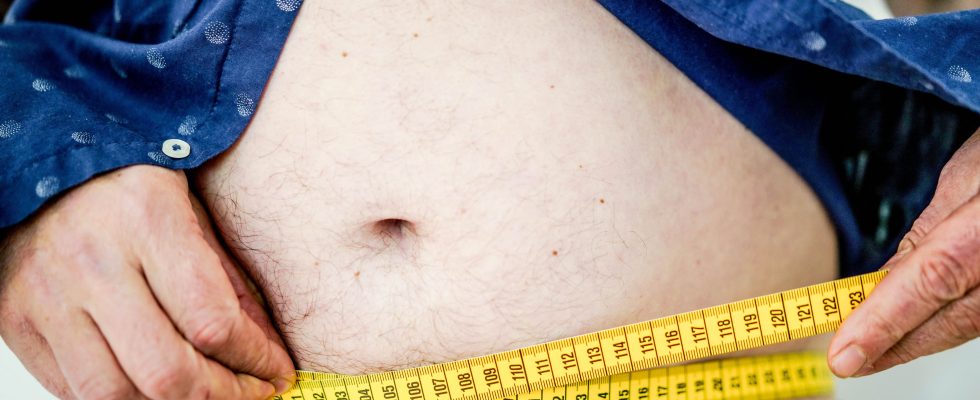Since the publication last week of the global study of Lancet on the prevalence of obesity, the small French community of specialists in this pathology is in turmoil. “We are, collectively, in the process of writing a letter to the editor, to question these results which are ‘surprising’ for France”, confirms Professor Olivier Ziegler, specialist in this pathology at Nancy University Hospital.
According to data published by the prestigious scientific journal, obesity ultimately remains fairly contained in our country, with only 9.8% of women and 10.2% of men affected. Better yet, while the entire planet seems to be gaining weight, the French have seen their figure lighten since 2005, when the prevalence of obesity reached 13% among women and 12.6% among men, respectively.
Good news that we should be happy about… Except that these figures, which are very different from the data published so far, raise questions. The latest national study on the subject, published in 2023 under the aegis of Inserm, reported a prevalence of obesity of 17% in 2020, up two points compared to 2012. Known as d’Obépi, this survey presents a methodology that is open to criticism because it is only declarative, based on surveys first carried out by telephone, then by Internet for the last year available.
Previous publications or Lancetwho is telling the truth?
However, it was regularly cited, because it appeared consistent with other, slightly older works, based on height and weight measurement data. This work, published using data extracted from the large French Constances cohort, reported a prevalence of obesity in 2016 of 15.3% among men and 15.2% among women. That is much more than the data retained for the study published in the Lancet for 2016 (11.3% for men and 11.2% for women!)… yet taken from the same Constances cohort!
Who’s telling the truth? “Previous publications,” replies without a shadow of hesitation Marie Zins, the scientific and technical director of the Constances cohort. The explanation is simple: its teams transmitted to Lancet raw data, which cannot in reality be considered representative of the French population. “Our cohort is biased. We know in particular that people belonging to socio-professional categories participate less in this type of survey, the same for the most obese individuals. This is why, when we work on our data ourselves, we we always apply weighting coefficients, which the team did not do Lancet“, continues the French epidemiologist.
“It’s like with a photo, the more you zoom in, the blurrier the results become”
However, the British work cannot be criticized in any way, according to Marie Zins: “For this vast global picture of obesity, the essential thing for the researchers was to collect harmonized and comparable data across the world.” An exercise not well suited to reading the results presented by country: “It’s like a photo: the more you zoom in, the blurrier the results become,” insists the researcher. A lot of noise for nothing ? The start of controversy surrounding this study once again highlights the astonishing lack of official data in our country on the prevalence of this pathology. A problem that Professor Martine Laville already warned about in her report “Better prevent and manage obesity in France” published in April 2023. It recommended a “systematic and digitized collection of data (at least weight and height) collected during health examinations, prevention in childhood, in adulthood and during service universal national”.
French obesity specialists are keen to obtain a correction of the Lancet. Because the stakes are high: “We absolutely need a new road map to improve the care of our patients. The file seems well advanced on the government’s side. This study and the message should not be falsely positive that it conveys make the subject less urgent”, insists Muriel Coupaye, the former president of the French Association for Study and Research on Obesity (Aféro).
Certainly, France is not as affected as other countries by this scourge. “We are largely in a Mediterranean model, with a diet that is rather protective for health,” recalls epidemiologist Philippe Amouyel. But this specialist also recalls the need to increase prevention: “The consumption of junk food and ultra-processed foods is increasing here as elsewhere, so we must remain vigilant.”
.
